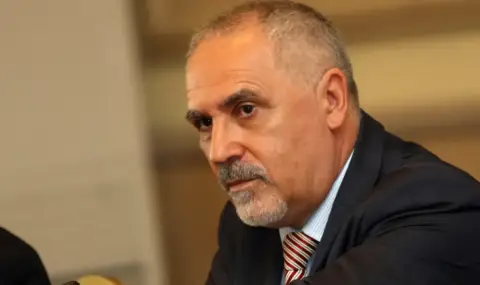Are we witnessing a pliable and half-hearted Bulgarian foreign policy after the scandal about the documents and the UN resolution on Srebrenica developed. Does Bulgaria act under pressure… And what signals do we give… Diplomat Lyubomir Kyuchukov, former deputy minister of foreign affairs, spoke to FAKTI.
- Mr. Kyuchukov, does Bulgaria have a principled foreign policy, or are we susceptible. I am asking you, of course, about the scandal surrounding “Srebrenica”, in which our acting Prime Minister and Foreign Minister Dimitar Glavchev ordered an “abstain” vote, and our representative at the UN – Lachezara Stoeva, did not comply…
- There are two very serious problems here. The first - how this document, which is being voted on in the UN, affects the stability of Bosnia and Herzegovina and the Balkans as a whole, and the second - the way of making foreign policy in Bulgaria. As far as the question you ask me is related to the way of making foreign policy, unfortunately, I have to state that in the last 15 years, professional expertise and political leadership have not met in the territory of our foreign policy. It's just that the serious professional expertise available in the Ministry of Foreign Affairs is not used in our foreign policy. Our foreign policy has become largely personal, chaotic, unpredictable, and this naturally leads to a sharp decrease in the effectiveness of our foreign policy activity. It has gotten to the point that the Ministry of Foreign Affairs is practically forced not to make foreign policy, but to organize visits.
- The fact that Lachezara Stoeva did not comply with the prime minister's order is correct or she will suffer the consequences because, after all, the prime minister – although currently employed, he is her employer…
- Here we must clarify that Glavchev's order itself was practically unenforceable from the point of view of UN procedures. Why? Bulgaria, as a co-sponsor of this document, has already joined it and cannot vote against its own proposal. In order for this to happen, Bulgaria must first withdraw as a co-presenter and only then can it vote in another way. That is, the order itself was made in an insufficiently professional manner, and as far as we can see from the published documents, it was made without coordination with the line directorates in the Ministry of Foreign Affairs.
- And what does it mean that Prime Minister Glavchev was misled or simply does not understand what it is about?
- This is a concrete example of the problems that the separation of a political decision from professional expertise can create. As well as for the unfortunate combination of the positions of prime minister and foreign minister without the necessary foreign policy experience.
- Serbian President Vucic said what he expected, but it did not happen. Who did not fulfill his commitment… Is all this at the expense of Bulgaria…
? - Here we come to the vaudeville part of the whole story, according to which threats with local mobsters are even involved. And which is not subject to comment. It is not an exception in such situations to seek contact at the highest level. But this happens without intermediaries and pressure. And it is natural for Bulgaria to argue and defend its position. And Bulgaria has expressed itself clearly and unambiguously on the issue of the genocide in Srebrenica. Bulgaria has participated in all the documents accepted so far by both the UN and other international institutions, so it is a speculation that Bulgaria will change its position, refusing to recognize something it has already recognized. Here the problem is different. The UN has more than one document on the genocide in Srebrenica. The UN also created a special tribunal for the crimes in the former Yugoslavia, this tribunal convicted the persons who were involved in the commission of these crimes, they are already in prison and the very adoption of this resolution 30 years after the events that took place is already more a political act.
The resolution itself as content does not contain new elements, it does not impute collective guilt and was even adopted in a rather mild version.
The vast majority of countries in the UN General Assembly also condemned the genocide during the debates on its adoption. But 68 of them voted “abstained”. Why? They have no reservations about the content, but express concern about the time in which it is adopted, respectively, and the effect that this resolution will cause. This is about the fact that there are very serious risks to destabilize the very statehood of Bosnia and Herzegovina. The President of Republika Srpska within Bosnia and Herzegovina, Milorad Dodik, announced that a document has already been initiated and submitted to the Parliament of Republika Srpska for Republika Srpska to leave the federation, which means the dissolution of the state. Moreover, the very fact that the resolution was officially supported by the state of Bosnia and Herzegovina, but there is no internal support from one of the entities in the Federation – Republika Srpska, leads to acute confrontation at the internal state level. There, ethnic tensions are escalating and the process of national reconciliation, laid down as a foundation for state building under the Dayton Agreement, is at serious risk. And this creates risks for the stability of the entire region.
- How will they look at us and what signal are we giving to our European partners after we clearly show how the tail is turning…
- When I spoke about the fact that in our foreign policy, unfortunately, professionalism is isolated, I mentioned that it is becoming inconsistent and chaotic. I mean exactly those situations like the current one. Naturally, when a country abruptly changes its position on a given issue, without reasoning, this does not inspire trust and respect for its foreign policy.
